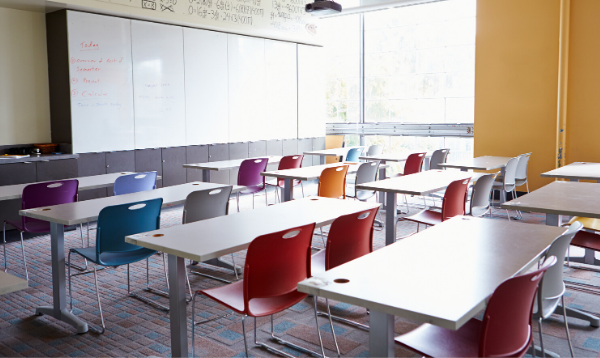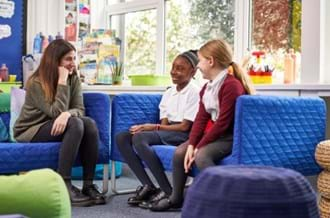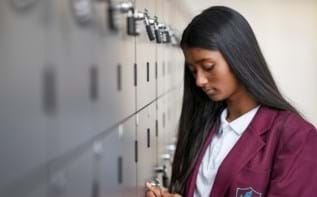Returning to school after a crisis: a personal reflection
What is it like to return to school after a crisis? As some schools prepare to welcome back more pupils, Julia Clements, one of Place2Be's Principal Educational Psychologists, reflects on her experience working in a school in Thailand before, during and after the Boxing Day tsunami.

At the time of writing, many school leaders and their teams are thinking about returning more children and staff to school after eight weeks of lockdown and schools being very different places to the busy, vibrant places they usually are.
There is a lot of uncertainty about how to manage the transition and how staff, children and their families will recover from the loss and change the coronavirus pandemic has brought to all our lives.
This time reminds me of working in a school in Phuket, Thailand, when the devastating tsunami struck in 2004. Our school became a refuge for those worst affected and we found ourselves supporting members of the local community and tourists as they tried to cope with the aftermath of the disaster.
As a staff group, we soon became physically and emotionally drained from supporting others, whilst also supporting our own families and friends. So, my first piece of learning was that it is essential to look after ourselves, before supporting others – a good reminder of ‘the oxygen mask principle’.
After becoming a refuge, we quickly had to get the school ready again for our children’s return -many of whom we had been unable to contact as the tsunami hit during the school holidays. As a staff group, we were anxious about what lay ahead – how will the children be? How will they cope? How will we cope?
This was a second lesson I drew from this experience – that as the significant adults in children’s lives, we need to be aware of how we are coping and know how important it is to reach out to a trusted other if our ways of coping are unhealthy or counter-productive.
We met as a staff group and created an overall framework for what the first days and weeks back at school might look like. We knew that we all, both staff and children alike, needed to feel physically and psychologically safe and grounded. We talked about what had happened to us and our community, in assemblies, during circle times and individually.
We agreed that we could not tell the children that a tsunami wouldn’t strike again, but we did tell them that we had plans to do everything we could to keep them safe. We were calm in how we interacted with the children, their families and with each other, and if we had a difficult day, we agreed to reach out to a nominated person who would offer support.
We had ceremonies lead by the local Buddhist monks which were beautiful and moving and helped us to feel connected and supported in our grief. But they also gave us a great sense of hope – I will never forget sitting in the evening sun watching as a child from each class lit a paper lantern and let it soar upward into the sky.
Overall, by working together as a staff team, we created a great sense of ‘we can do this’. Of course, there were children, families and staff who needed additional or more specialist support and we created an atmosphere in which reaching out or noticing when somebody needed support was encouraged.
I offer these reflections to help give a sense of hope to those who are planning their own journey of recovery with their school community. Each school will have their own individual journey to make, and as with many journeys, it may take longer than you thought, the territory may be unfamiliar, and you may feel lost and overwhelmed at times. However, schools are full of resilient, resourceful people.
Place2Be has put together a series of free resources focused on community recovery, to help headteachers and school staff start to bring their schools back together following recent challenging times.
This blog was written in a personal capacity and does not necessarily reflect the view of the organisation.
News & blogs

Uniting health and schools to improve mental health
Read Place2Be Chief Executive, Catherine Roche's, thoughts on uniting health and schools to improve mental health.
Read more
Back to school: breaking down the barriers to attendance
As the school year starts, Place2Be's Educational Psychologist team share interventions to help improve school attendance.
Read more
10 tips for nurturing the wellbeing of LGBTQ+ young people
Place2Be's Plus+ Group shares their tips and advice on how to create safe environments for LGBTQ+ children and young people.
Read more



